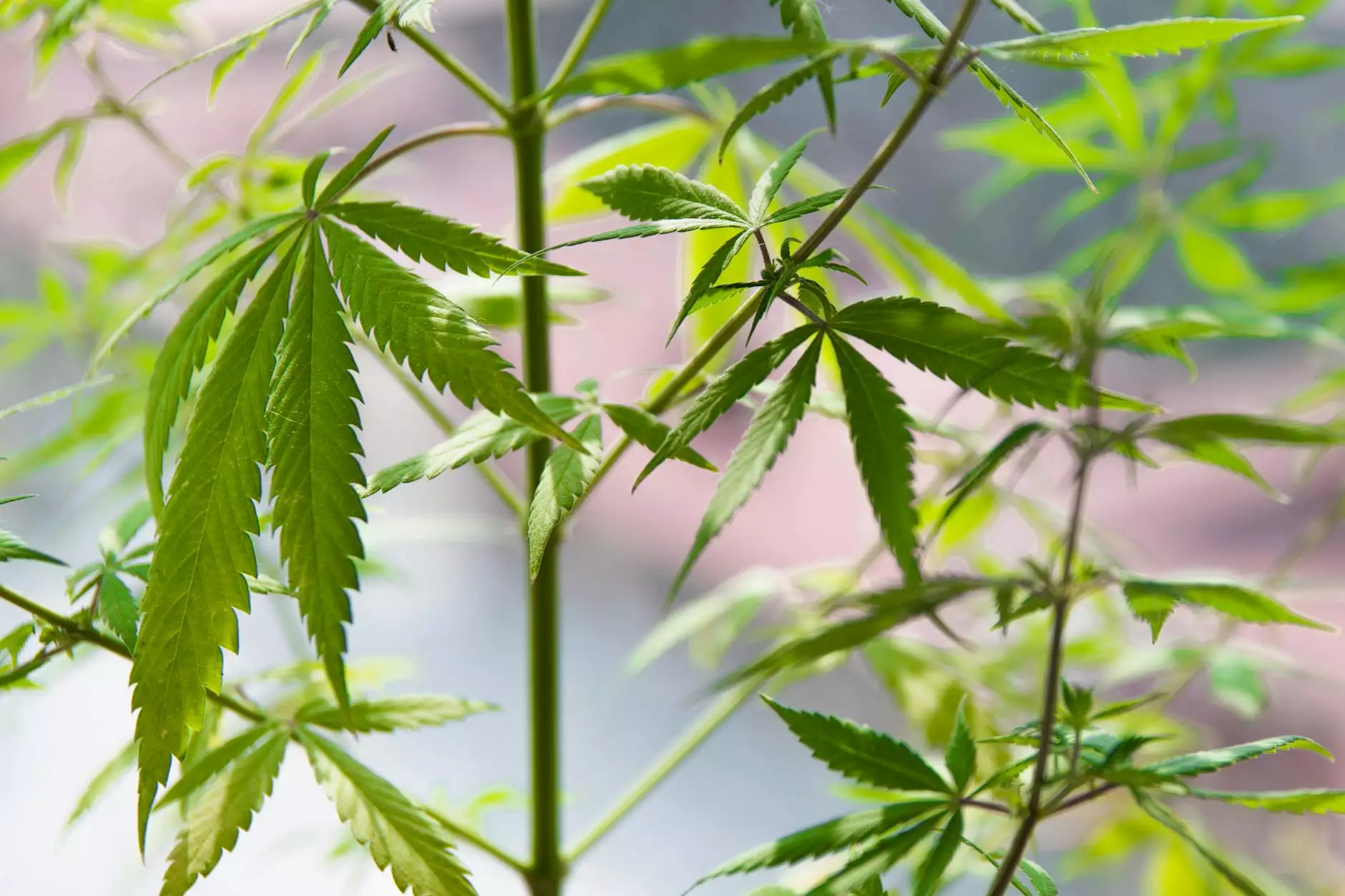Understanding THCA Flower: The Future of Cannabis

THCA flower has become a topic of great interest in the cannabis industry, captivating both seasoned users and newcomers alike. As cannabis enthusiasts continue to explore different compounds and their benefits, THCA (tetrahydrocannabinolic acid) stands out for its unique properties and potential therapeutic effects. In this article, we will delve deep into the world of THCA flower, encompassing its significance, benefits, consumption methods, and the broader context of its role in cannabis culture.
What is THCA?
To understand the THCA flower, it's crucial to first grasp what THCA actually is. THCA is a non-psychoactive precursor to THC (tetrahydrocannabinol), the compound most commonly associated with the psychoactive effects of cannabis. While THC interacts with the body’s endocannabinoid system, producing the classic “high,” THCA does not produce such effects when consumed in its raw form.
The Chemical Structure of THCA
THCA is a cannabinoid found in raw cannabis that is formed during the plant's growth process. As cannabis plants mature and undergo decarboxylation (a process typically triggered by heat), THCA converts to THC. Understanding this transformation is essential for anyone interested in the therapeutic uses of cannabis. The distinctive chemical structure of THCA allows it to interact differently with the body compared to its more famous counterpart, THC.
Benefits of THCA Flower
The THCA flower offers a multitude of benefits that can cater to various needs and preferences. Let's explore some of the most notable advantages:
- A Non-Psychoactive Alternative: For individuals seeking relief without the high associated with THC, THCA provides an appealing alternative. It offers potential therapeutic benefits without altering mental clarity.
- Potential Anti-Inflammatory Effects: Preliminary studies suggest that THCA may possess anti-inflammatory properties. This could be beneficial for individuals suffering from chronic pain or inflammatory conditions.
- Neuroprotective Qualities: Some research indicates that THCA may offer neuroprotective benefits, potentially aiding in the prevention of neurodegenerative diseases.
- Appetite Stimulation: THCA might help stimulate appetite without the psychoactive effects that many associate with THC, beneficial for individuals undergoing treatments that suppress appetite.
- Rich in Terpenes: The THCA flower is often rich in terpenes, which can enhance its overall therapeutic effect and contribute to the plant's diverse aroma and flavor profiles.
How to Use THCA Flower
There are several methods by which individuals can enjoy the benefits of THCA flower, each offering a unique experience. Below are some popular consumption methods:
Raw Consumption
One of the simplest and most effective ways to utilize THCA flower is through raw consumption. This can involve:
- Juicing: Incorporating raw cannabis leaves and flowers into juices or smoothies can provide a nutritious boost enriched with THCA and other vital nutrients.
- Salads: Adding fresh, raw cannabis leaves to salads can create unique culinary experiences while promoting health and wellness.
Using THCA in Edibles
Cooking with THCA flower is an excellent way to infuse foods with potential benefits while avoiding the psychoactive effects of THC. THCA can be utilized in various recipes, such as:
- Butters and Oils: Creating infused butters or oils allows for versatile cooking options, enhancing the flavors and health benefits of dishes.
- Baked Goods: Incorporating THCA into baked goods can provide an innovative way to enjoy its benefits discreetly.
THCA Tinctures
Another popular method for consuming THCA is through tinctures. These liquids are typically made by extracting the compounds of cannabis with alcohol or glycerin. THCA tinctures can be added to foods and beverages or taken directly.
THCA vs. THC: Understanding the Differences
It’s essential to differentiate between THCA and THC to fully appreciate what each can offer. While both compounds originate from the cannabis plant, their effects, benefits, and potential uses can be remarkably different:
FeatureTHCATHCPsychoactive EffectsNoYesPotential BenefitsAnti-inflammatory, neuroprotectivePain relief, euphoriaCommon FormsRaw flower, tinctures, ediblesVapor, edibles, concentratesLegal StatusLegal in many areasLegal in some jurisdictionsThe Significance of THCA in Medical Cannabis
The increasing recognition of THCA flower in the medical cannabis community marks a critical development in how patients access treatment. Here are some key points about its significance:
Medical Cannabis Referrals
Medical cannabis referrals are vital for patients seeking to access cannabis seamlessly. Particularly for those interested in exploring non-psychoactive options, requesting a referral specifically to use THCA can pave the way for alternative treatments. Medical professionals can provide guidance tailored to individual health needs.
Therapeutic Use Cases
Healthcare providers are increasingly looking into the potential of THCA for various health conditions, such as:
- Arthritis: The anti-inflammatory properties of THCA may offer relief for individuals suffering from arthritis and related conditions.
- Epilepsy: Some preliminary studies suggest that cannabinoids, including THCA, may have anticonvulsant properties beneficial for certain types of epilepsy.
- Aiding Cancer Patients: THCA’s potential to enhance appetite and reduce nausea makes it a promising option for cancer patients undergoing chemotherapy.
The Cultural Impact of THCA Flower
The rise of THCA flower reflects broader trends in cannabis culture and society at large. As awareness of cannabis expands, so does the demand for diverse products that cater to the health-conscious consumer.
Cannabis Collectives
Cannabis collectives are instrumental in creating community spaces for individuals to explore their cannabis needs, including access to THCA products. These collectives often emphasize education, enabling members to educate themselves about various cannabinoid benefits and consumption methods. This makes them valuable resources for newcomers and experienced users alike.
Cannabis Tours
Cannabis tours have also emerged as a phenomenon, providing enthusiasts with opportunities to learn about cannabis cultivation, products, and various cannabinoids like THCA. These tours often include:
- Facility Visits: Tour participants can witness the cultivation and harvesting processes, gaining insight into how THCA flower is produced.
- Tastings: Many tours offer tastings of different THCA products, helping individuals find products that suit their preferences.
Conclusion
In conclusion, the THCA flower has emerged as a pivotal player in the evolving cannabis landscape. Its unique properties and benefits, coupled with the growing interest in medical and therapeutic uses, position it as a valuable asset for consumers and patients alike. With the support of medical professionals, cannabis collectives, and community engagement, THCA continues to pave the way for a new chapter in cannabis culture, advocating for wellness, informed choices, and the celebration of cannabis diversity.
As we move forward, it is essential for both consumers and healthcare practitioners to stay informed about the latest research and developments surrounding THCA and other cannabinoids. By embracing this knowledge, we can collectively enhance our understanding of how cannabis can positively impact health and community well-being.









